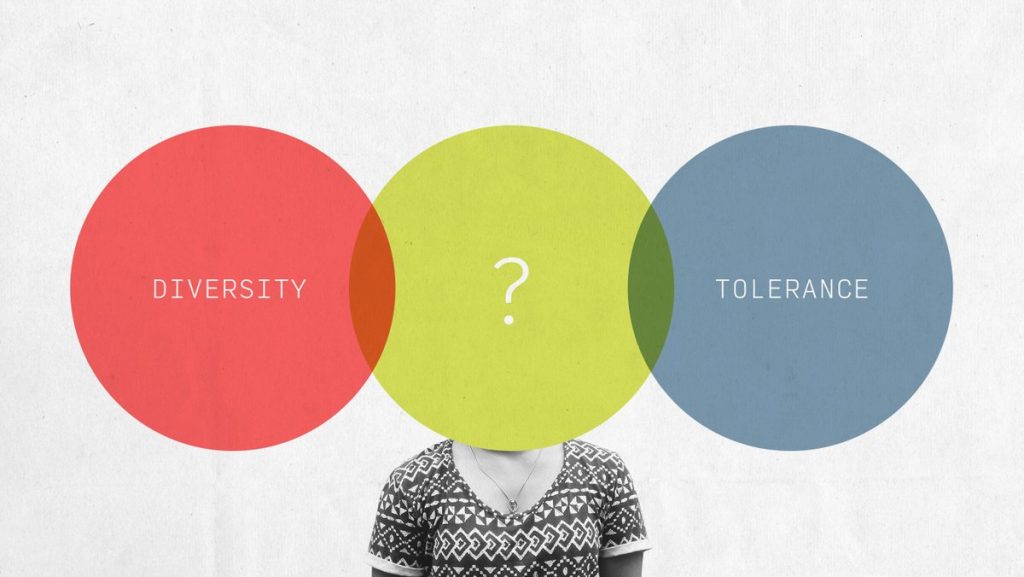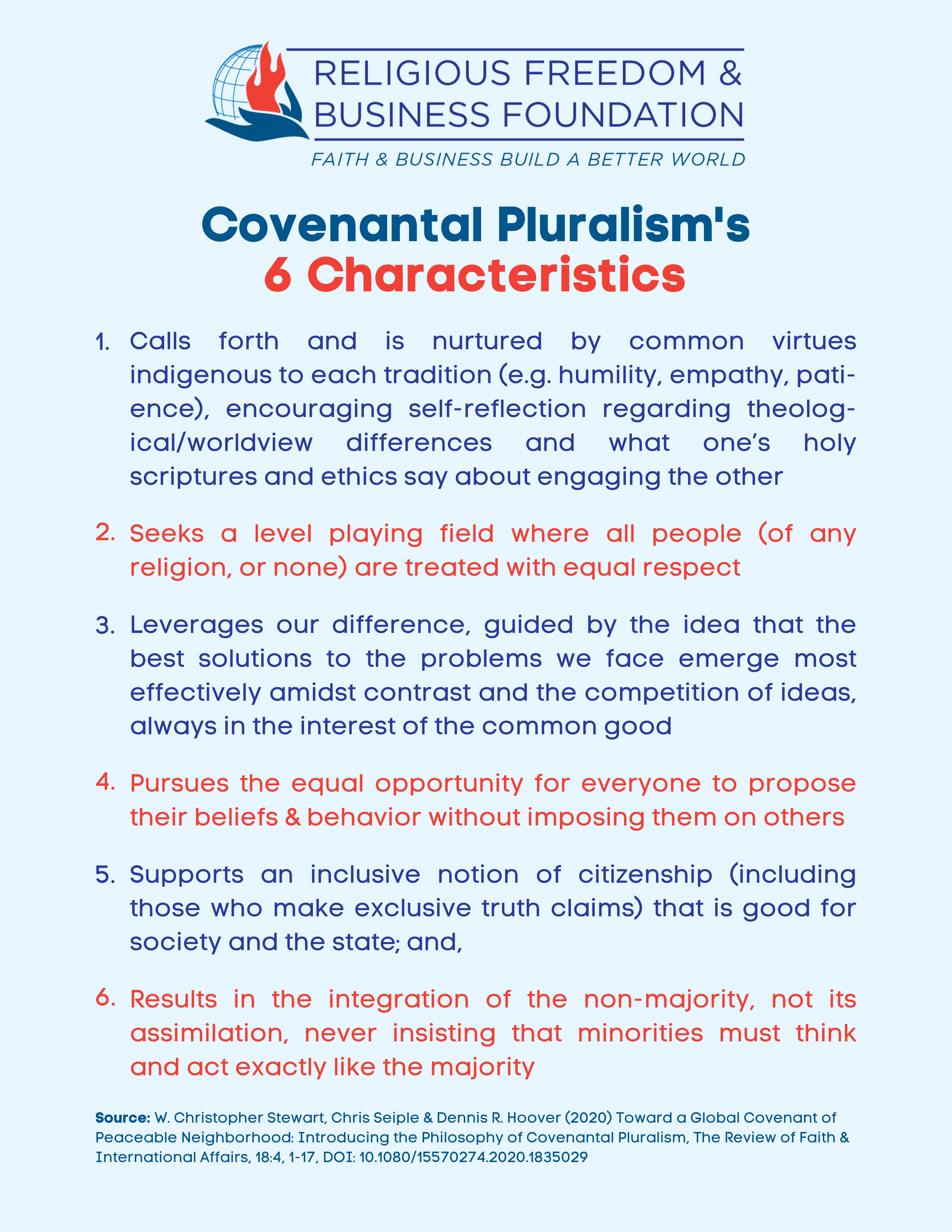 The global challenge of living together peacefully and constructively in the context of deep religious/worldview differences will not be met through bumper-sticker slogans about “tolerance.”
The global challenge of living together peacefully and constructively in the context of deep religious/worldview differences will not be met through bumper-sticker slogans about “tolerance.”
An essay by Religious Freedom & Business Foundation board member, Chris Seiple and coauthors Chris Stewart (Templeton Religion Trust) and Dennis Hoover (Institute for Global Engagement), provides an introductory overview of a richer approach called Covenantal Pluralism, which has been developed over the last few years at the Templeton Religion Trust. The philosophy of covenantal pluralism is a robust, relational, and non-relativistic paradigm of citizenship that emphasizes both legal equality and neighborly solidarity. It calls not only for a constitutional order characterized by equal rights and responsibilities but also a culture of engagement characterized by relationships of mutual respect and protection.
Their essay, Toward a Global Covenant of Peaceable Neighborhood: Introducing the Philosophy of Covenantal Pluralism, lists six characteristics of covenantal pluralism:
This directly relates to a big question that Sir John Templeton asked:
“What conditions contribute to progress in religion?”
In religions, as in science and the economy, progress is possible, but under what conditions? Tolerance is a great starting point, but it can easily become a vehicle for apathy or indifference.
Sir John Templeton thought we could do better. In fact, he believed that there’s vast, untapped potential beyond tolerance. But how do we get there? It starts with humility. If the sum total of what we know about spiritual reality is less than 1%, then should we not be eager to learn from other points of view?
Sir John Templeton believed that engagement across difference accelerates discovery and leads to progress, unleashing social dividends that flow [or: result] from religious faith and practice at its best, transforming religious diversity from a troublesome fact into a positive force. Religions are often seen as competing for people’s hearts and minds, and to some extent this is true.
But can religions (and non-theistic worldviews) engage one another cooperatively and constructively? How can we leverage religion-and-belief diversity to make the world a better place? What are the conditions under which this can happen, and what are the most effective ways of fostering cooperative engagement across deep differences?
That’s why we’re seeking to identify, understand, and promote the conditions that contribute to or enable the sort of open-minded, cooperative competition that Sir John envisioned would lead to progress in religions.
One of the key themes at this year’s Global Business & Interfaith Peace Awards is “Covenantal Pluralism.” Join us to see it in action. Also, you can learn more at Templeton Religion Trust and their video below.

